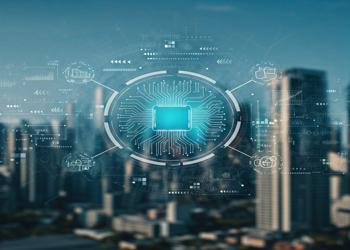
Artificial Intelligence (AI) and Machine Learning (ML): Transforming the Future
Artificial Intelligence (AI) and Machine Learning (ML) are no longer just buzzwords. They have become integral to the technological revolution, influencing every aspect of our daily lives, from personalized recommendations on streaming platforms to advanced medical diagnostics. In this blog, we delve into the nuances of AI and ML, exploring their definitions, applications, benefits, and future potential.
What are AI and ML?
Artificial Intelligence (AI) refers to the simulation of human intelligence by machines. It encompasses a wide range of capabilities, such as problem-solving, decision-making, natural language understand
ing, and visual perception. AI systems are designed to perform tasks that typically require human cognition, with the ultimate goal of creating systems that can think, learn, and adapt.
Machine Learning (ML) is a subset of AI that focuses on enabling machines to learn from data and improve their performance over time without explicit programming. ML algorithms identify patterns in data and use these insights to make predictions or decisions. ML is the backbone of many AI applications, from self-driving cars to virtual assistants.
Key Components of AI and ML
Data: The foundation of AI and ML, data is used to train models and ensure accurate outputs. High-quality, diverse datasets are critical for success.
Algorithms: These are mathematical instructions that enable systems to process data, recognize patterns, and make decisions.
Computational Power: Advances in hardware, such as GPUs and TPUs, have accelerated AI and ML development by enabling faster processing of large datasets.
Model Training: This involves feeding data into ML algorithms to help them "learn" and improve over time.
Applications of AI and ML
AI and ML have revolutionized numerous industries, including:
Healthcare:
AI-powered diagnostic tools can detect diseases like cancer at early stages.
Predictive analytics improve patient outcomes and optimize hospital operations.
Finance:
Fraud detection systems use ML to identify unusual transactions.
AI-driven investment platforms provide personalized financial advice.
Retail and E-commerce:
Personalized recommendations enhance the shopping experience.
Inventory management systems optimize stock levels and reduce waste.
Transportation:
Self-driving cars rely on AI and ML for navigation and obstacle avoidance.
Smart traffic systems reduce congestion and improve safety.
Entertainment:
Streaming platforms use AI to suggest content based on user preferences.
AI-driven tools assist in content creation, such as video editing and scriptwriting.
Benefits of AI and ML
Increased Efficiency: Automating repetitive tasks allows humans to focus on more complex and creative work.
Enhanced Decision-Making: AI provides data-driven insights, improving accuracy and reducing errors.
Cost Savings: Automation and predictive analytics help businesses cut costs and optimize resources.
Personalization: Tailored recommendations and solutions enhance user satisfaction.
Challenges and Ethical Considerations
Despite their benefits, AI and ML come with challenges:
Data Privacy: Ensuring user data is protected from misuse is a critical concern.
Bias in Algorithms: AI systems can inherit biases from the data they are trained on, leading to unfair outcomes.
Job Displacement: Automation could lead to job losses in certain sectors, requiring a focus on reskilling.
Accountability: Determining responsibility for AI-driven decisions can be complex.
Ethical AI development requires transparency, fairness, and accountability. Organizations must prioritize creating systems that align with societal values.
The Future of AI and ML
The future of AI and ML is both exciting and transformative. Emerging trends include:
Explainable AI (XAI): Developing systems that can explain their decisions to users, increasing trust and transparency.
Edge AI: Bringing AI capabilities closer to the user’s device, reducing latency and enhancing privacy.
AI in Education: Personalized learning platforms will cater to individual student needs, revolutionizing education.
Advanced Robotics: AI-powered robots will assist in complex tasks, from surgical procedures to disaster recovery.
Generative AI: Creating new content, such as art and music, based on user inputs.
Conclusion
AI and ML are reshaping the world, driving innovation, and solving complex problems. As we move forward, it’s crucial to address the challenges and ethical considerations to harness the full potential of these technologies. With continued advancements, AI and ML promise a future where technology seamlessly integrates into our lives, making them smarter, safer, and more efficient.
Comments (0)
Categories
Recent posts
.png)
.png)
Demystifying Full Stack Development: A ...
5 Aug 2024
Better Relationship Between Friends
1 Jul 2021.png)
Full Stack Development Tools and ...
5 Aug 2024.png)




